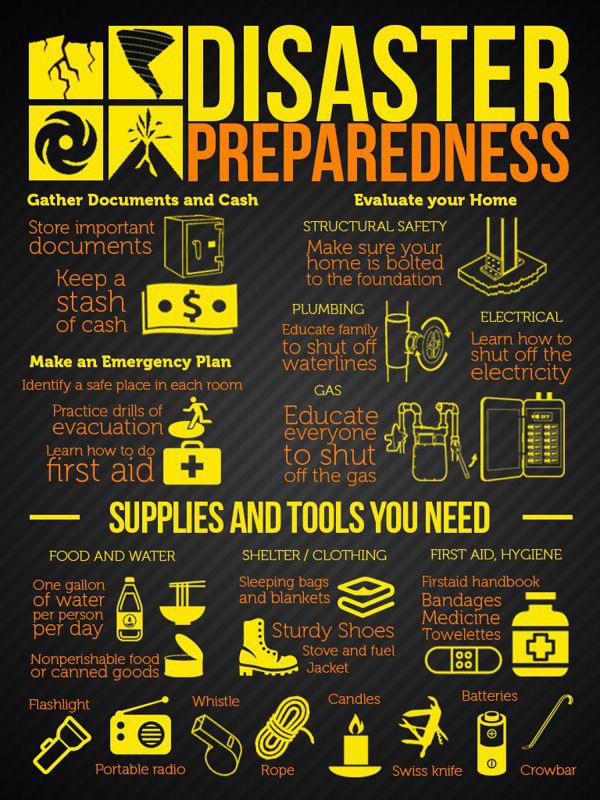
The world around us is in a state of constant flux. There are many things that can disrupt your normal day-to-day activities, but you don’t have to be at the mercy of these events. By taking steps to prepare for disasters before they happen, you can increase your chances of coming out on top and making it through unscathed. Here’s your guide to disaster preparedness:
Gather your documents and cash.
It’s important to have the necessary documents and cash on hand so that you can access them quickly during an emergency. Your documents should include: Passport, driver’s license, birth certificate and social security card and as well as Medical records for yourself, family members and pets (if you have them).
Evaluate your home.
Check the roof, windows and doors. Repair any damage to them to prevent water damage. Check the foundation. Make sure it’s structurally sound by hiring a professional contractor if you aren’t sure about it yourself or you see signs of cracks in the walls or flooring. Check electrical system and water supply. Perform regular maintenance on both systems to keep them up-to-date, such as checking fuses regularly for breaks in power supply or changing filters when necessary for clean drinking water. Check heating system and fire extinguisher (so you’re prepared in case of an emergency). If there are any hazards like carbon monoxide detectors or smoke alarms in place already, make sure they’re working properly before disaster strikes so that your family can quickly escape if necessary! Be sure your first aid kit is filled with important items like bandages/gauze pads – this includes anything else you may need like ointment/antiseptic wipes too! And don’t forget about food supplies either (especially since how long it takes recovery efforts after an earthquake depends largely on where they happened).
Get to know your community’s emergency plan.
As a citizen, you have a responsibility to know your community’s emergency plan. In the event of an emergency, you should know where to meet with family and friends in case of separation. You should also know what to do if injured during an emergency or if your home is damaged by disaster. If you are responsible for someone else’s safety—a child or an elderly person—it is essential that you familiarize yourself with their needs as well as the resources available in your community.
Preparing for a disaster: What supplies and tools do you need?
So you’re making a plan to be prepared for an emergency. That’s good, but there’s one more thing you need: supplies and tools. Your kit should include things like flashlights and batteries, first aid kits and blankets, a battery-powered or hand crank radio (if the power goes out), water bottles and food rations that don’t need refrigeration or cooking. If you have children at home—or if you are a child yourself—make sure they have their own personal kits with all of their own essential items listed above! You also might want to consider having a larger kit in your car so that it is always ready to go if needed.
Remember, knowledge is power. If you’re prepared for a disaster, you’ll be able to handle it better than if you aren’t.
